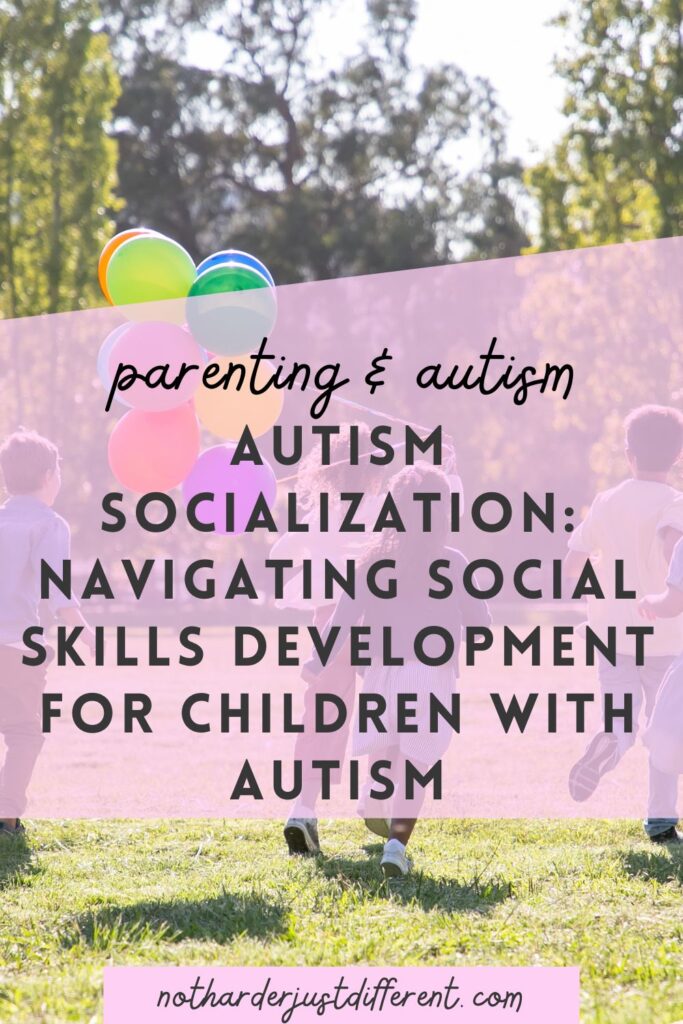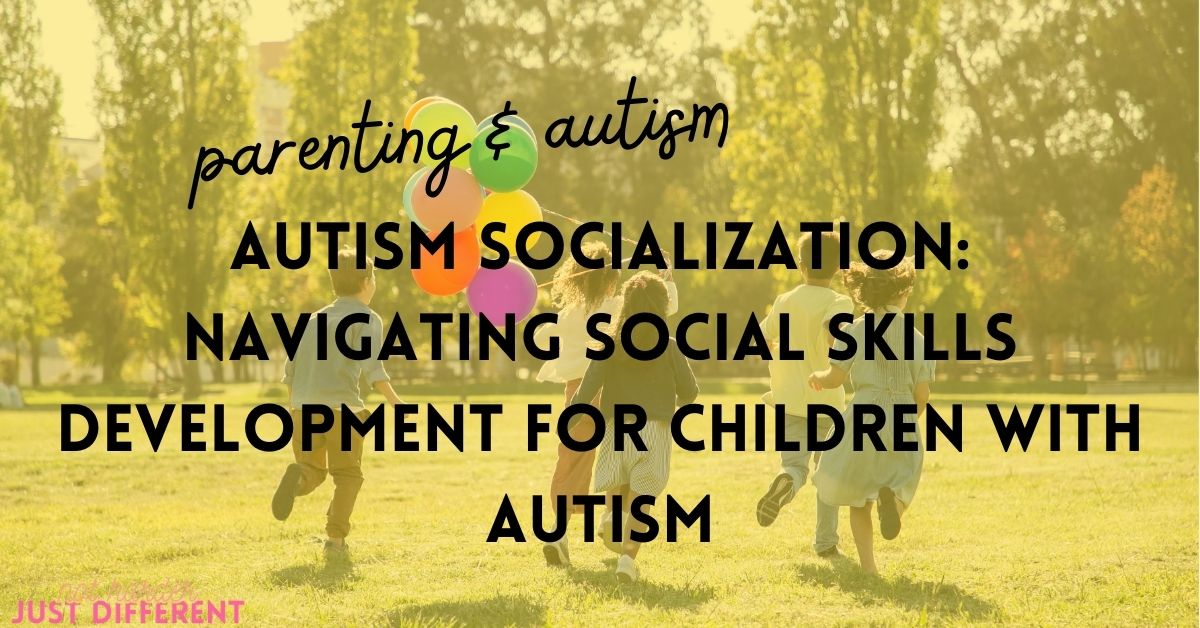Disclaimer: As a future Licensed Clinical Social Worker (LCSW) currently pursuing my master’s degree, I am passionate about sharing insights and information related to parenting, autism and homeschooling based on my personal experiences and research. However, the content shared on this blog is not intended to substitute professional advice, diagnosis, or treatment. Parenting is a deeply personal journey, and while I strive to provide valuable insights, every family and situation is unique. Readers are encouraged to consult with qualified professionals for personalized guidance tailored to their specific needs and circumstances.
Navigating the world of socialization can pose unique challenges for children on the autism spectrum, but with the right guidance and support, they can build essential social skills and foster meaningful connections with others.
Social skills development is a critical aspect of childhood development, laying the foundation for positive relationships, effective communication, and emotional well-being. For children with autism, socialization may present particular hurdles due to differences in social communication, understanding of social cues, and sensory sensitivities. However, with early intervention and targeted support, children with autism can learn and grow in their social abilities, empowering them to navigate the complexities of social interaction with confidence and competence.

Understanding Autism Socialization
Autism socialization encompasses a broad range of skills and behaviors, including initiating and maintaining conversations, interpreting social cues, understanding personal boundaries, and developing empathy and perspective-taking abilities. Children with autism may struggle with aspects of socialization due to challenges in theory of mind, executive functioning, and sensory processing, which can impact their ability to navigate social situations effectively. Understanding the unique profile of strengths and challenges associated with autism is essential for tailoring interventions and support strategies to meet the individual needs of each child.
Real Life Tip: Break down social skills into manageable steps and provide clear, concrete instructions and feedback to help children with autism understand expectations and navigate social interactions more effectively.
Strategies for Supporting Autism Socialization
There are various evidence-based strategies and interventions that can support social skills development in children with autism. Structured social skills training programs, such as Social Stories, video modeling, and role-playing activities, provide opportunities for children to learn and practice social behaviors in a structured and supportive environment. Additionally, incorporating visual supports, social scripts, and peer-mediated interventions can enhance comprehension and facilitate social interaction for children with autism. Creating inclusive environments that promote acceptance, understanding, and respect for neurodiversity is also crucial for fostering positive social experiences and building inclusive communities.
Real World Tip: Use real-life scenarios and examples to teach social skills, and provide opportunities for children with autism to practice these skills in naturalistic settings, such as during playdates, group activities, or community outings.

Building Self-Esteem and Confidence
Developing self-esteem and confidence is essential for children with autism to navigate social interactions with resilience and positivity. Encourage children to recognize and celebrate their strengths, interests, and accomplishments, fostering a sense of self-worth and pride in their unique abilities. Provide opportunities for children to set and achieve goals, take on leadership roles, and contribute to group activities, boosting their self-confidence and sense of agency in social settings. Celebrate progress and growth, and offer praise and encouragement for efforts made towards social skills development, reinforcing a growth mindset and fostering a positive self-image.
Real World Tip: Incorporate activities that promote self-awareness and self-expression, such as journaling, artwork, or role-playing exercises, to help children with autism explore their emotions, preferences, and identities, building a strong foundation for self-esteem and self-confidence.
Nurturing Social Connections and Relationships
Beyond acquiring social skills, fostering meaningful connections and relationships is a fundamental aspect of autism socialization. Encouraging peer interactions, facilitating opportunities for shared interests and activities, and promoting collaborative play can help children with autism develop friendships and cultivate a sense of belonging within their social circles. Educating peers, teachers, and caregivers about autism and providing support and guidance for navigating social interactions can also contribute to creating a supportive and inclusive social environment for children with autism to thrive.
Real World Tip: Encourage open communication and problem-solving skills to help children with autism resolve conflicts and navigate social challenges effectively. Provide guidance and support for developing empathy and understanding others’ perspectives, fostering positive social interactions and relationships.
Promoting Peer Acceptance and Understanding
Promoting peer acceptance and understanding is essential for creating a supportive and inclusive social environment where children with autism can thrive. Foster empathy, compassion, and respect among peers by promoting a culture of acceptance, diversity, and inclusion within schools, communities, and social groups. Encourage peer mentoring programs, buddy systems, and cooperative learning activities that promote positive social interactions and facilitate meaningful connections between children with autism and their neurotypical peers. Provide education and awareness-raising initiatives to promote understanding of autism and dispel myths and stereotypes, fostering empathy, acceptance, and support for individuals with autism within the broader community.
Real World Tip: Encourage peer-led initiatives and activities that promote acceptance and inclusion, such as autism awareness campaigns, friendship clubs, or diversity celebrations, empowering children to become advocates for acceptance and understanding of individual differences and promoting a culture of kindness and inclusivity for all.
Navigating social skills development for children with autism requires patience, understanding, and tailored support. By recognizing and embracing the unique strengths and challenges associated with autism socialization, we can empower children with autism to build meaningful connections, foster friendships, and participate fully in social experiences.

